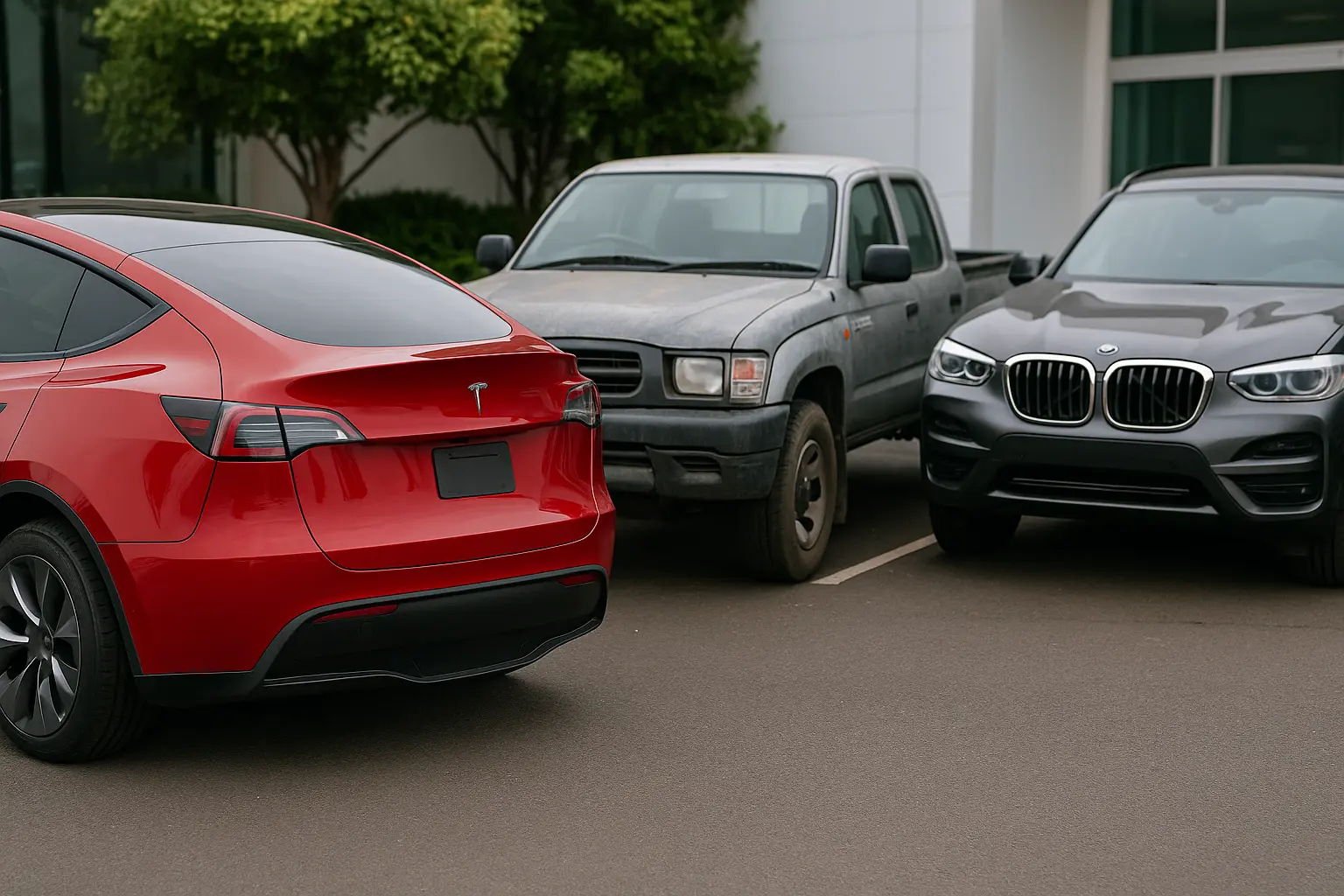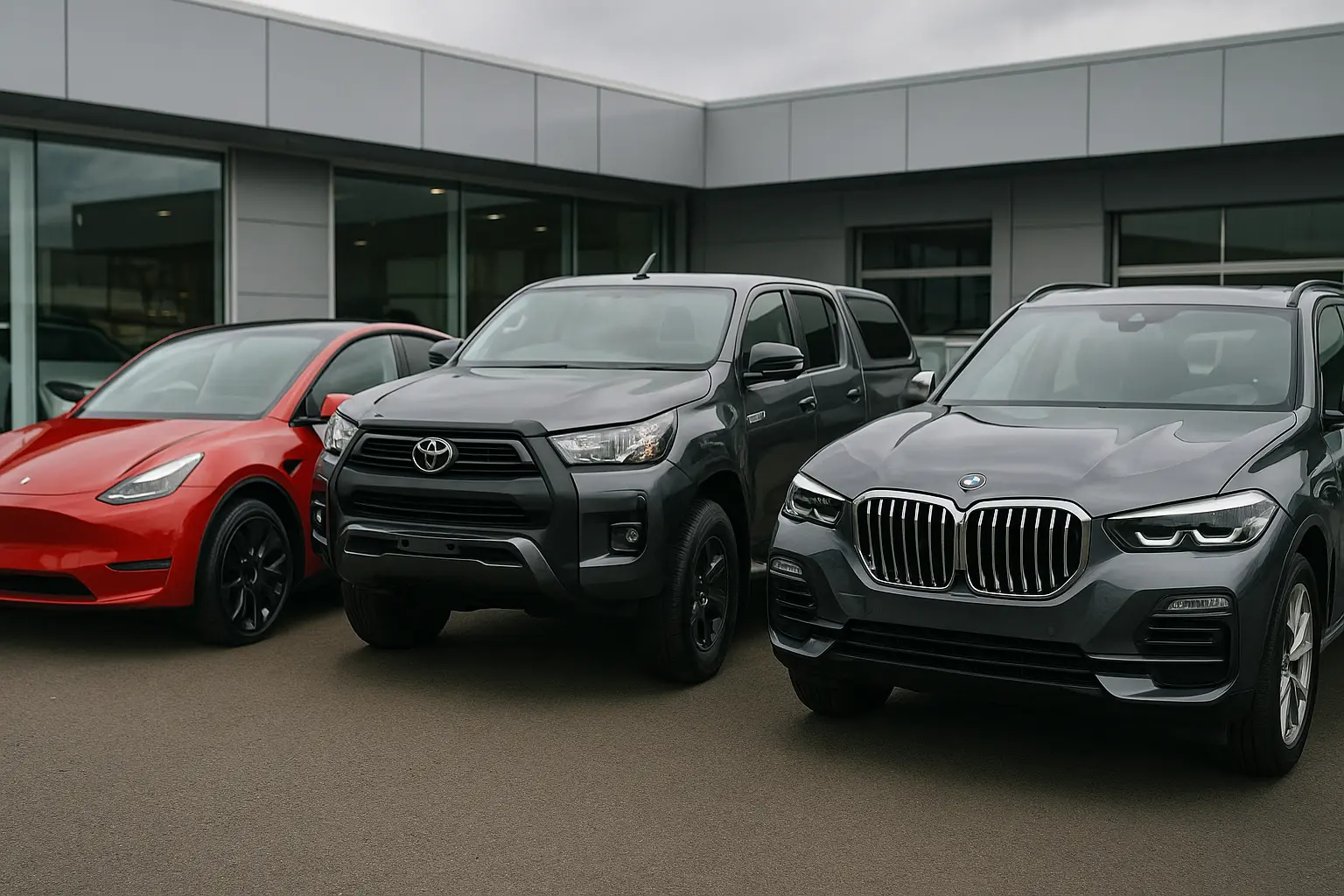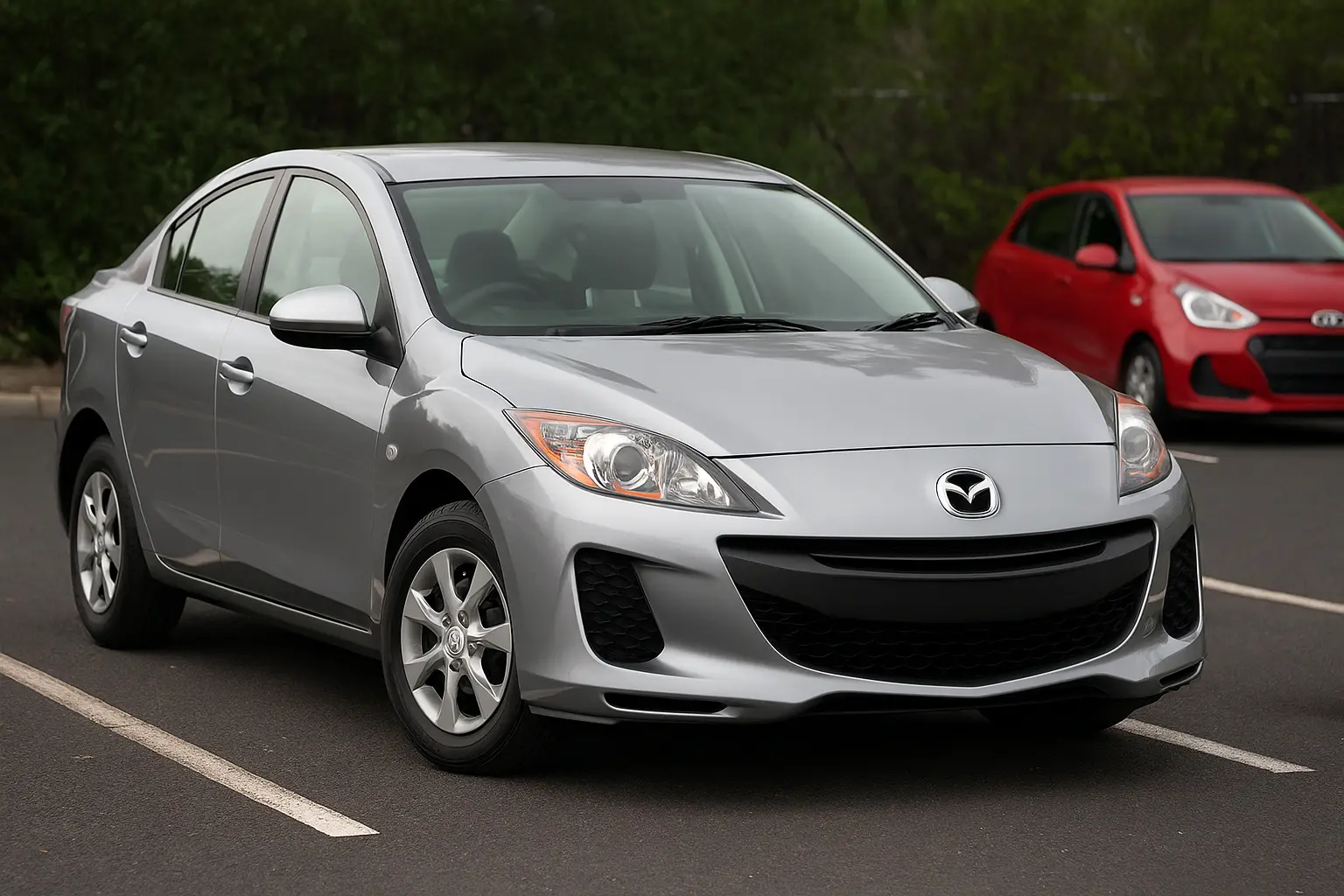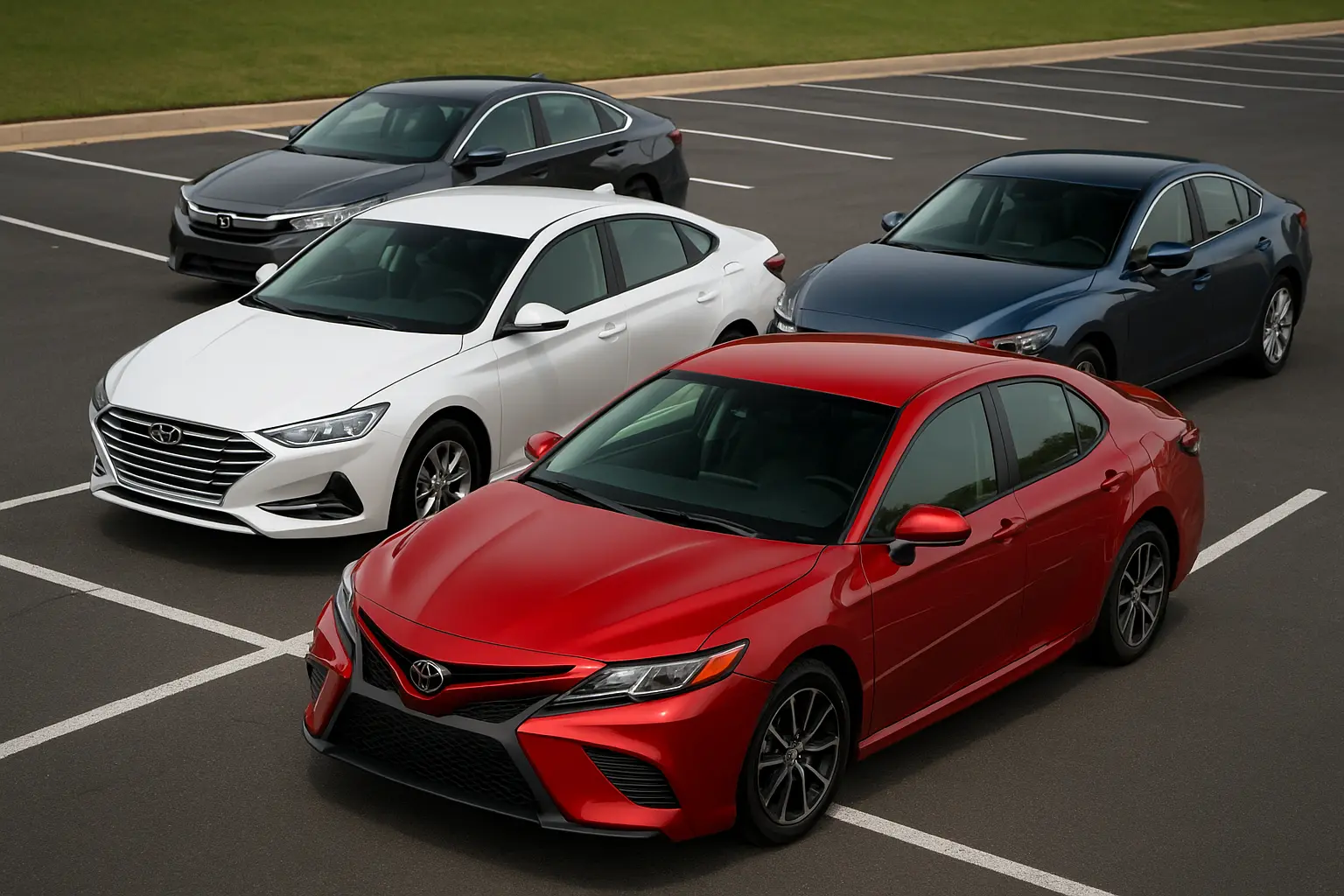Introduction: Why Car Recalls Matter More Than Ever in 2025
With increasing complexity in vehicle technology and stricter safety standards, car recalls have become a common but critical part of the Australian automotive landscape. In 2025, several carmakers—both mainstream and luxury—have issued recall notices impacting thousands of vehicles across the country.
From faulty airbags and braking systems to electric vehicle battery concerns, it’s essential for Aussie drivers to stay on top of recall alerts. Whether you're a new car buyer, used car shopper, or a loyal owner of a well-aged ride, this comprehensive guide will help you understand:
What car recalls are
Major recalls issued in Australia in 2025
Brands and models affected
What steps to take if your vehicle is involved
How recalls impact resale and safety
Let’s dive into the complete 2025 car recall report for Australia.
What Is a Car Recall?
A car recall is a manufacturer or government-issued request to return a vehicle to a dealer due to a defect or safety-related issue. In Australia, recalls are overseen by the Department of Infrastructure, Transport, Regional Development, Communications and the Arts, and registered through the Product Safety Australia portal.
Common causes of recalls include:
Airbag inflator issues
Engine or transmission defects
Software bugs
EV battery risks (overheating, fire hazard)
Fuel system leaks
Suspension or brake failures
In most cases, the defect poses a potential safety hazard, and the manufacturer must offer to inspect and fix the issue free of charge.
Australia’s Car Recall System – How It Works
In Australia, car recalls can be voluntary (initiated by the manufacturer) or mandatory (ordered by the government). Once a defect is identified:
Manufacturer Notifies the ACCC and Transport Department
Recall Details Are Publicly Listed on Product Safety Australia
Vehicle Owners Are Contacted (via registered dealer, letter, SMS, or email)
Repairs Are Scheduled at No Cost to the Customer
For used cars or private sales, it’s crucial for buyers to regularly check the Vehicle Identification Number (VIN) against recall databases.
2025 Car Recalls in Australia – Major Brands & Models Affected

Below is a summary of the most notable recalls in 2025, organized by manufacturer. (Note: This list is based on public announcements and Product Safety Australia updates as of July 2025.)
🔧 Toyota
Affected Models:
Toyota RAV4 Hybrid (2021–2024)
Toyota Hilux (2022–2023)
Toyota Yaris Cross (2021–2023)
Issue:
Hybrid inverter module may overheat and shut down while driving.
Fuel pipe connection may leak under pressure in Hilux models.
Fix:
Software reflash and component replacement.
⚡ Tesla
Affected Models:
Tesla Model 3 Highland (2023–2024)
Tesla Model Y (2022–2024)
Issue:
Faulty seat belt anchor sensor may not detect occupants properly.
Power steering software bug may reduce steering assist during low-speed maneuvers.
Fix:
OTA (Over-the-Air) software update and physical inspection for seat belt systems.
🔩 Ford
Affected Models:
Ford Ranger (2022–2023)
Ford Everest (2022–2024)
Ford Puma (2020–2022)
Issue:
Rear seat welds may separate in high-impact collisions.
Turbocharger assembly in diesel models may fail under heat stress.
Fix:
Inspection and replacement of affected components.
🔋 Hyundai / Kia
Affected Models:
Hyundai Ioniq 5 & Ioniq 6 (2022–2024)
Kia EV6 (2022–2023)
Hyundai Tucson (2021–2023)
Issue:
Battery Management System (BMS) may fail, leading to overcharging.
Electrical harness connector prone to corrosion due to poor sealing.
Fix:
Battery control software update and improved sealing for wiring.
🧯 Mazda
Affected Models:
Mazda CX-5 (2021–2023)
Mazda BT-50 (2022–2023)
Issue:
Fuel pump impeller may deform, reducing fuel flow and stalling engine.
Fix:
Fuel pump module replacement.
🛠️ BMW
Affected Models:
BMW X1 and X3 (2021–2023)
BMW iX3 and i4 (2022–2024)
Issue:
Software fault in brake system could cause delayed stopping distance.
Seat belt tensioner malfunction in electric models.
Fix:
Software patch and replacement of affected belt tensioners.
🪫 Mercedes-Benz
Affected Models:
EQC, EQB, and EQA models (2021–2023)
GLC and C-Class (2021–2022)
Issue:
Battery cooling defect causing thermal overload during fast charging.
Brake booster pressure issue.
Fix:
Battery module inspection and booster unit replacement.
🛞 Subaru
Affected Models:
Subaru Forester (2020–2022)
Subaru Outback XT (2022–2023)
Issue:
Rear-view camera display intermittently fails.
CVT transmission may slip under acceleration.
Fix:
Camera control module update and CVT clutch replacement.
🔍 Other Noteworthy Recalls in 2025
| Brand | Model | Defect Type |
|---|---|---|
| Nissan | X-Trail e-Power | Regenerative braking delay |
| Mitsubishi | Outlander Plug-in Hybrid | Charging port overheating |
| Isuzu | D-MAX | Loose tow bar mounting bolts |
| Honda | Civic, ZR-V Hybrid | Incorrectly torqued wheel nuts |
| MG | MG4, ZS EV | HV battery cell connector issue |
| Volkswagen | Golf, Tiguan | Faulty LED headlight control |
How to Check If Your Car Is on the 2025 Recall List
If you suspect your car may be affected, here are steps you can take:
1. Use the Vehicle Identification Number (VIN)
Go to www.vehiclerecalls.gov.au and enter your VIN to check for outstanding recalls.
2. Check Manufacturer Websites
Most car brands have dedicated recall lookup tools. Just search “<Brand> Australia recall check.”
3. Contact Your Dealer
Your local authorised dealership will have access to recall campaigns and can schedule the fix.
4. Stay Subscribed to Updates
You can opt in for email or SMS notifications from Product Safety Australia.
Why Recalls Happen More Often in Modern Cars
With cars becoming rolling computers, modern vehicles rely on complex electronic systems that can fail in unexpected ways. Recalls in 2025 are often due to:
Software bugs in ECUs, powertrain or infotainment systems
EV-specific issues like battery management and cooling
Supply chain components from shared suppliers (e.g., airbags, sensors)
It’s not just about mechanical problems anymore. The software era has brought a new wave of diagnostic complexity and potential safety pitfalls.
How Recalls Affect Car Value and Ownership
📉 Resale Value
If a recall is not addressed, it can lower resale value or make the car harder to sell privately.
Dealers are less likely to accept trade-ins with open recalls.
🚫 Registration Issues
In some extreme cases (e.g., Takata airbags), unrectified recalls may prevent registration renewal.
✅ Good News – Recalls Are Free
All repairs under a recall campaign are free of charge to the car owner, including labour and parts.
What If You Bought a Used Car?
If you’ve recently purchased a used vehicle:
Check the VIN immediately.
Request service records from the seller to confirm recall work has been completed.
If the car is still under recall, contact the nearest dealer to book a fix.
Used car buyers can be at higher risk because older models may have uncompleted recalls.
EVs and Recalls – A Growing Concern in 2025?
Electric Vehicles (EVs) have seen an uptick in recall rates compared to ICE (internal combustion engine) vehicles. In 2025, issues stem from:
Battery pack integrity
BMS software calibration
Rapid charger compatibility
Cabin electronics glitches
As EVs grow in popularity, so too does the need for robust testing and software support. EV manufacturers like Tesla, BYD, Hyundai, and Polestar have all issued recall campaigns this year.
Tips to Stay Safe and Recall-Ready
Here’s how to stay ahead of the curve:
Register your contact info with your car’s manufacturer
Subscribe to recall notifications at Product Safety Australia
Have your VIN easily accessible
Don’t ignore letters or emails from your dealer
Keep up with news from sites like CarSoop, CarsGuide, and Drive
Conclusion: What 2025 Tells Us About Car Safety in Australia
Car recalls in 2025 are a reminder that no brand—budget or premium—is immune from defects. But what matters most is how quickly and transparently manufacturers respond to issues. Thanks to Australia’s robust recall framework, most problems are resolved with minimal cost and risk to the owner.
As cars become more advanced, staying informed becomes part of responsible car ownership. Whether you’re shopping for a used car, maintaining your family SUV, or exploring the latest EVs—knowing which vehicles have open recalls could save you from a lot of trouble.
Stay tuned to carsoop.com.au for the latest recall updates, car reviews, ownership tips, and more.
Leave a comment
Your email address will not be published. Required fields are marked *




